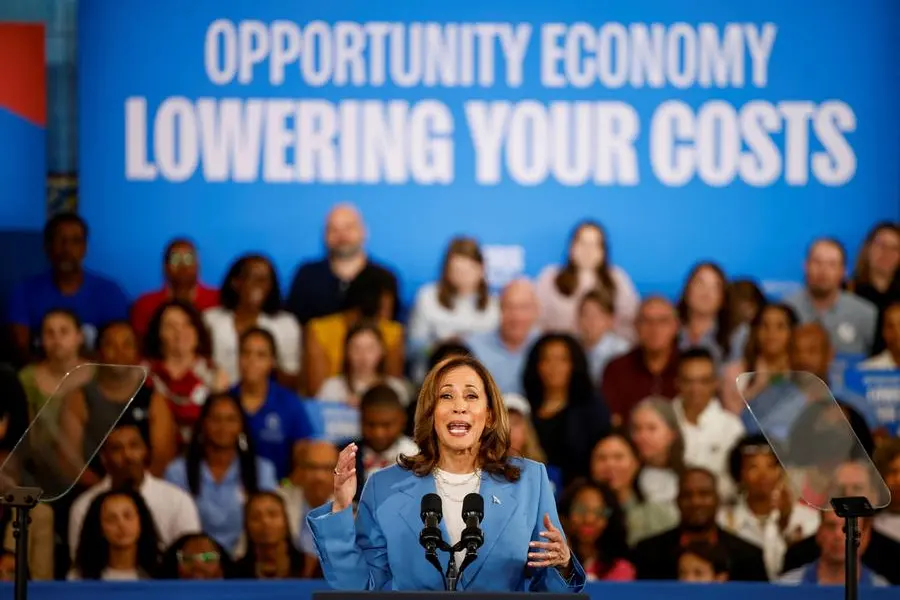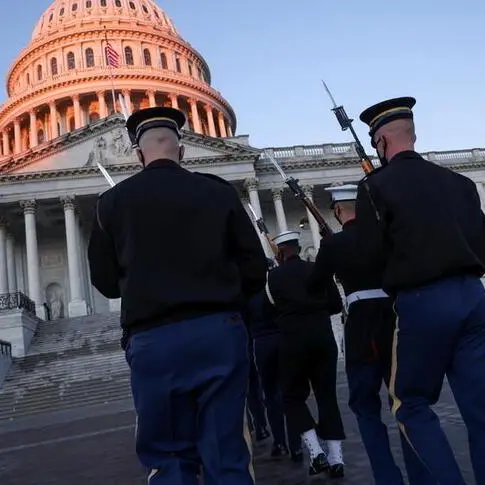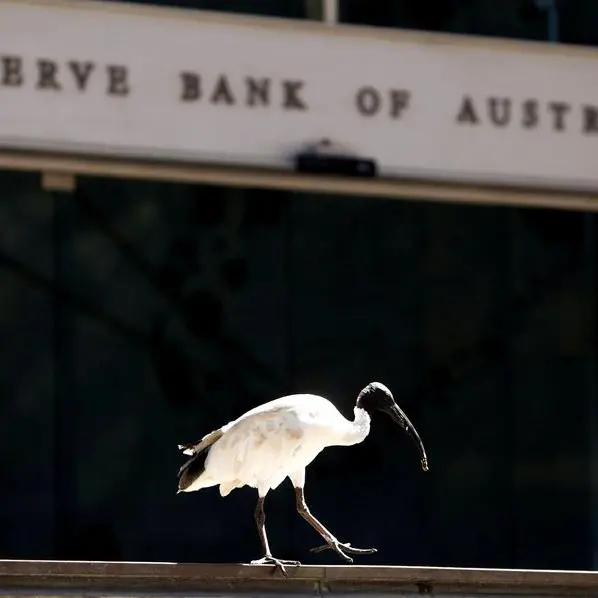PHOTO
WASHINGTON, DC – One of the biggest obstacles to US President Joe Biden’s re-election bid was that voters perceived him to be a poor steward of the economy. It turns out that Americans may not hold the same view of Vice President Kamala Harris, who became the presumptive Democratic nominee after Biden’s withdrawal.
A new Financial Times/University of Michigan poll finds that former president Donald Trump lags his challenger on economic stewardship for the first time since the pollsters began tracking the issue nearly a year ago. The well-crafted question asks respondents whom they trust most to handle the economy, regardless of their overall opinion of the candidates and how they plan to vote in 2024. From February through July, between 40% and 43% of respondents trusted Trump more than Biden, whose support never surpassed 37%. But Harris’s standing was a full seven percentage points above Biden’s July numbers, with 42% of respondents trusting her more than Trump.
Harris didn’t pull support from Trump, whom 41% of respondents – the same as in June and July – deemed more trustworthy. Instead, the share of respondents who reported that they trusted neither candidate fell from 18% in July to 10% in August. That 10% of voters are still up for grabs, as are the 5% of respondents who report being unsure of which candidate is better.
The Harris campaign must become laser-focused on winning over that 15% of voters. To that end, beginning with the economy-focused speech she plans to give this week in North Carolina, Harris should immediately end the White House’s tone-deaf efforts to convince Americans that their angst about Biden’s handling of the economy is unjustified, and instead recognize the validity of voters’ concerns.
With inflation reaching a four-decade-high during the Biden years, American households have fallen behind. Since Biden took office, consumer prices have risen by 19%, while wages for the average worker have increased by 17%. Inflation-adjusted median household income was lower in 2022 (the latest year for which Census Bureau data are available) than in 2021, lower in 2021 than in 2020, and lower in 2020 than in 2019.
Harris must acknowledge the challenges facing typical Americans and clearly articulate how she will differ from Biden in addressing them. Fortunately, as the presumptive nominee, Harris has a legitimate opportunity to reinvent herself. There is nothing cynical about this, just as there was nothing cynical about George H.W. Bush declaring his desire for “a kinder and gentler nation” when accepting the 1988 Republican presidential nomination after serving as vice president in the hard-edged Reagan administration for eight years. Harris would naturally operate differently than Biden (or anyone else) as chief executive, and she should make clear the specific nature of those differences.
Americans are desperate for a new direction from the Democratic party. Six in ten respondents to the FT/Michigan poll think that Harris should take a completely different approach or make major changes to Biden’s economic policies. Inflation is their biggest concern, with 39% of respondents citing Democratic policies as one of the three issues most responsible for inflation over the last six months. Only 24% say the same about Republican policies.
As for what the vice president’s new approach should be, I have four suggestions.
For starters, if Harris decides to expand the social safety net or middle-class entitlements, she should take a targeted approach. Biden sent stimulus checks to households with six-figure incomes (as did Trump) and nearly doubled unemployment-insurance payments, contributing to inflation. Americans may once again welcome the view that spending programs – financed, of course, with other people’s money – should be provided only to those who truly need public support.
Second, Harris should present herself as a president who will address the problems confronting the US economy, not one who will introduce sweeping changes. The American people – who, again, clearly say that they want a different approach than Biden’s – may dislike the uncertainty of a second president promising economic revolution.
Their concern may also be more practical. The government does not have the competence to remake the economy, which is becoming clear as it tries to do so. A new Financial Times investigation found that 40% of the biggest manufacturing investments from Biden’s sweeping Inflation Reduction Act and CHIPS and Science Act have been delayed for up to several years or paused indefinitely.
Third, Harris should recognize fiscal constraints. The 2021 American Rescue Plan, with its staggering $1.9 trillion price tag, was the most reckless fiscal policy pursued by the US government in decades. If Biden had been more fiscally responsible, US inflation would have been milder, and the president likely would have had a higher approval rating.
Finally, Harris should make clear to the business community and high-income Americans that she views them as fellow citizens, not as adversaries. She should signal an end to a regulatory regime that chills deal-making and should make clear that tax policy will not be used punitively.
A presidential candidate’s economic-policy platform is a blueprint for governing. But it is also a statement of values, approach, and tone. Americans want a new type of economic stewardship, one that is steadier, less divisive, more responsible, and more sure-footed.
Michael R. Strain, Director of Economic Policy Studies at the American Enterprise Institute, is the author, most recently, of The American Dream Is Not Dead (But Populism Could Kill It) (Templeton Press, 2020).
Copyright: Project Syndicate, 2024.
www.project-syndicate.org





















